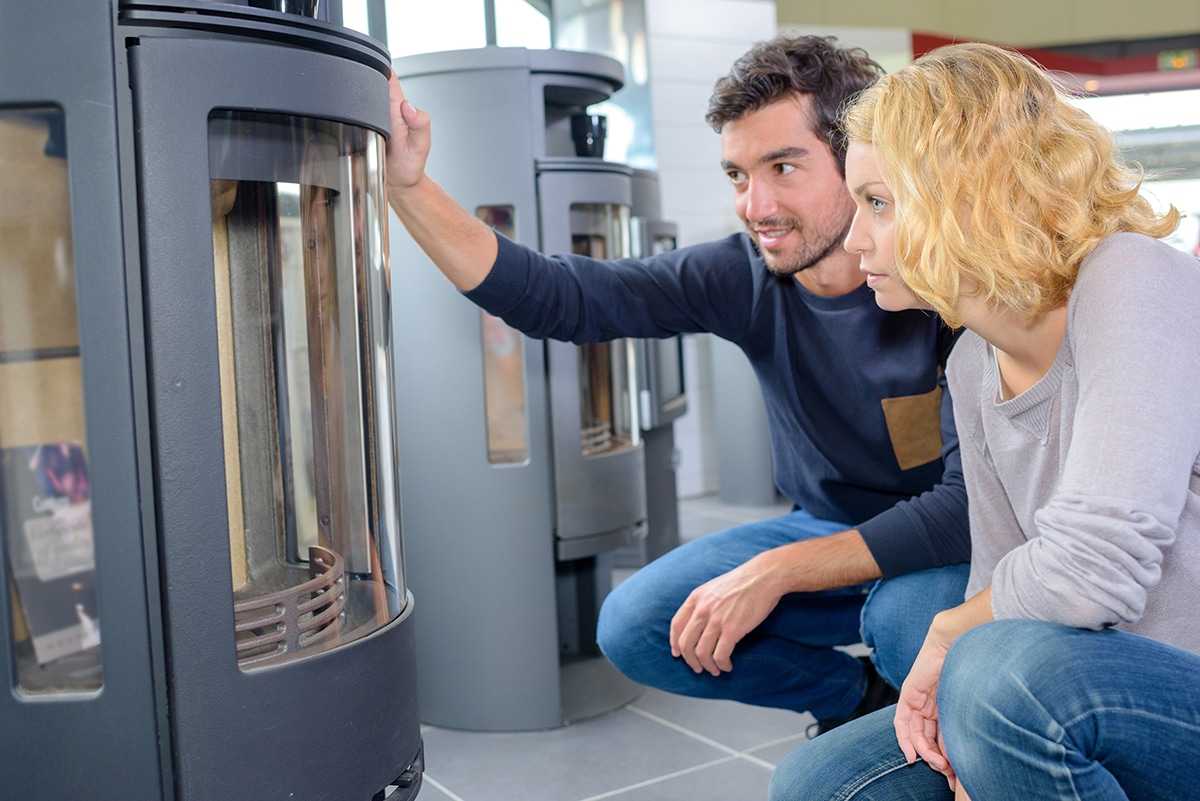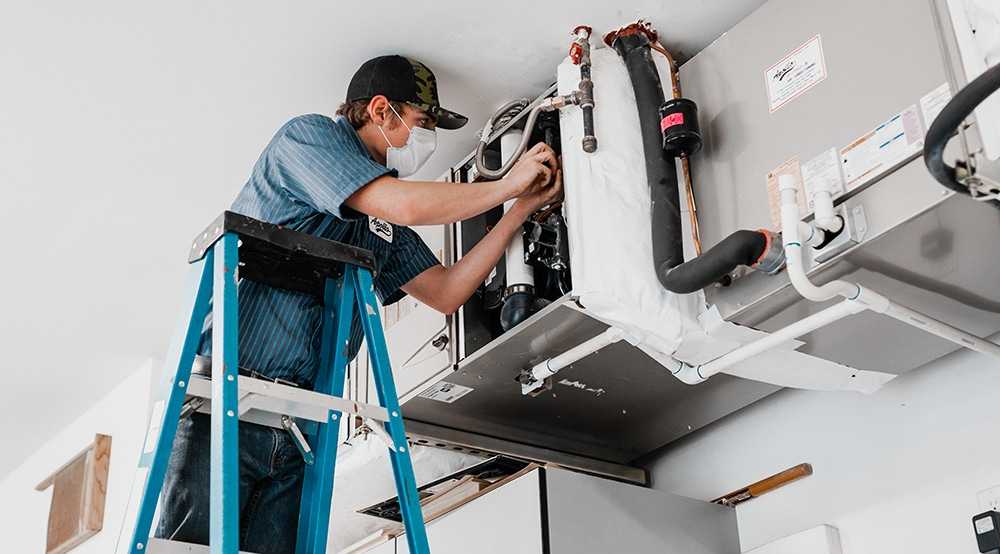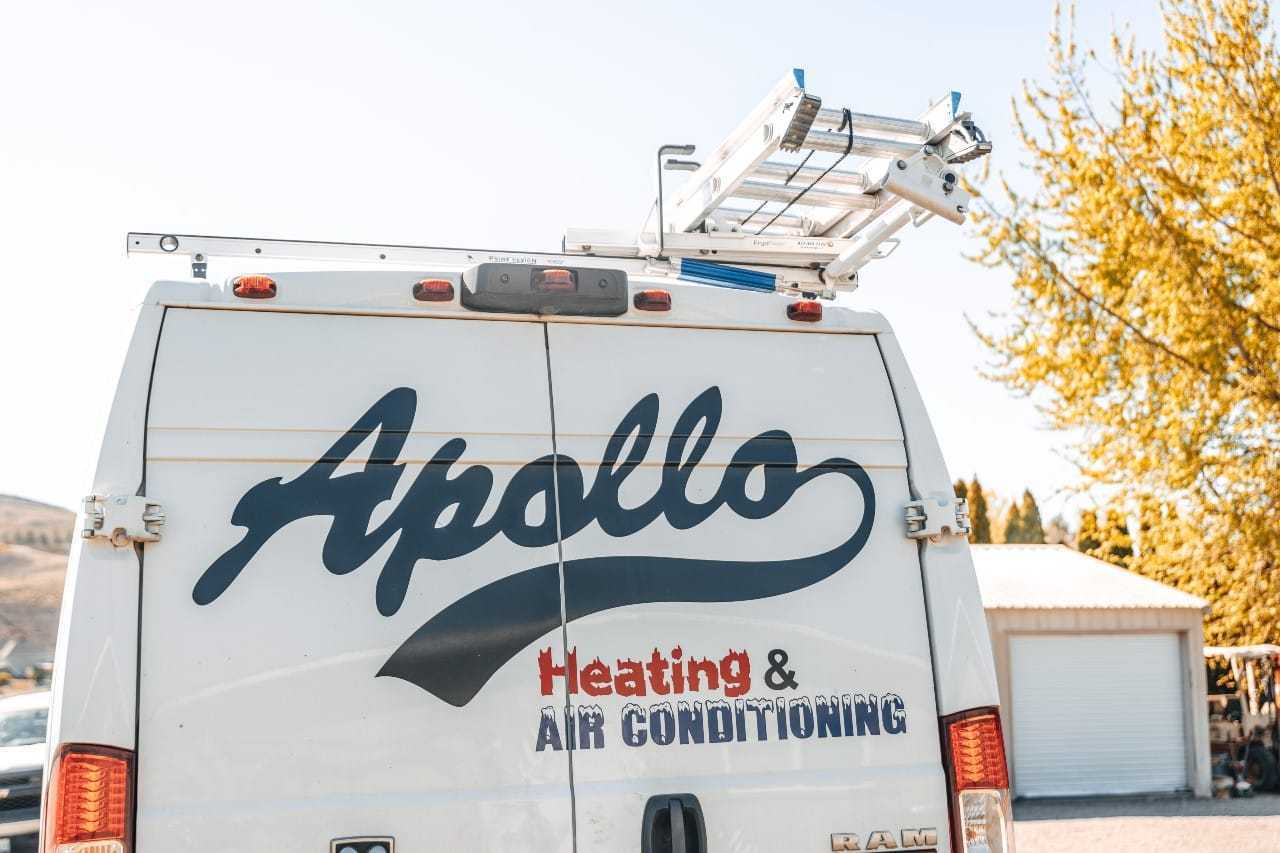Choosing the right furnace for your home is a decision that marries comfort with efficiency, safety, and cost-effectiveness. A crucial aspect of this process is understanding home furnace installation, recognizing the importance of furnace efficiency, and navigating the diverse types of furnaces available on the market. Whether you’re a new homeowner establishing your first heating system, seeking to reduce your energy bills, or in the market for an upgrade, Apollo Heating & Air Conditioning is here to illuminate the pathway to an informed decision, ensuring your home is a haven of comfort in all seasons.
What Kind of Furnace is Right for Me? The Basics of Furnace Types 
As winter approaches, understanding the types of furnaces becomes critical in ensuring your home remains a cozy refuge. Furnaces stand out due to their efficiency, low noise, versatility, and durability, fitting seamlessly into various homes. However, what are these different types of furnaces?
- Standard Gas Furnaces: These are common in many U.S. homes and are known for their economical operation and high efficiency. Gas is delivered via city pipelines, creating heat in the furnace that’s then distributed throughout the home. These can reach efficiency ratings of up to 97 percent.
- Oil Furnaces: More common in rural areas without natural gas access; these require stored oil tanks. They’re economical and long-lasting with proper maintenance but require significant upkeep and come with fluctuating oil prices.
- Electric Furnaces: Ideal for homes without gas lines, these use electric heating elements. They’re affordable and compact but generally less efficient than gas models.
For a more detailed dive into each furnace type, check out our previous post, “What Are The Different Types of Furnaces?” Understanding these options is the first step in pinpointing the right solution for your home furnace installation and achieving optimal furnace efficiency.
How Big of a Furnace Do I Need? Understanding Size and BTUs
Selecting the right furnace isn’t just about the type; size plays a crucial role in efficiency and comfort. The capacity of a furnace is measured in British Thermal Units (BTUs), indicating the amount of heat it can produce per hour. The appropriate size is essential for efficient home furnace installation, as a unit too small won’t adequately heat your home. At the same time, an oversized one will cycle on and off more frequently, reducing furnace efficiency, increasing wear and tear, and driving up energy costs.
Calculating the correct BTUs for your home involves considering various factors, including your house’s size, climate, insulation, and even the number of windows. While you could certainly attempt this math equation independently, this assessment is best handled by professionals to ensure accurate results. Remember, an ideal furnace is one that’s precisely tailored to meet your home’s needs.
How Can I Save Money & Resources? Energy Efficiency Explained
When it comes to furnace efficiency, several factors are at play, with specific key terms and ratings providing valuable insights. The Annual Fuel Utilization Efficiency (AFUE) represents the percentage of heat generated for every dollar of fuel used, indicating how well fossil fuels are converted to heat. The higher the AFUE, the more cost-effective and efficient the furnace.
The implications of these ratings on monthly bills are substantial. A furnace with a high AFUE rating ensures more heat is generated from less fuel, directly reducing the amount you spend on energy every month. For instance, upgrading from an older model with an AFUE of 60% to one with an efficiency of 95% can make a remarkable difference to your energy bills, saving you money in the long run.
Furthermore, the environmental impact of a high-efficiency furnace cannot be overstated. A more efficient system consumes less fossil fuel, meaning fewer carbon emissions are released into the atmosphere. This reduction is crucial in the fight against climate change, contributing to a healthier environment globally. Additionally, features like Electronically Commutated Motors (ECMs) in furnaces maintain efficiency across varied speeds, further enhancing energy savings and minimizing environmental footprints.
Understanding these energy ratings and choosing a furnace with high efficiency is beneficial not just for your wallet but for the planet as well.
How Long Will My Furnace Last? Lifespan & Durability Stats
The durability of your furnace is a critical consideration, affecting long-term comfort and costs. On average, a well-maintained gas or oil furnace lasts about 15 to 20 years, though some can operate efficiently for up to 30 years. Electric furnaces have a longer average lifespan of 20 to 30 years. However, various factors can influence these general timelines.
sta
Factors That Affect Furnace Life Expectancy:
- Size: An improperly sized furnace, either too large or too small for your home, can lead to frequent cycling or prolonged running times, respectively. Both scenarios can cause unnecessary strain, reducing the unit’s lifespan.
- Installation: The quality of your home furnace installation is paramount. Incorrect procedures, like improper wiring or ill-suited ductwork, can all diminish a furnace’s operational life.
- Type of Heating System:The complexity of the heating system can also impact its durability. For instance, single-stage and two-stage systems tend to have fewer breakdowns than modulating systems.
- Thermostat Temperature:Extreme thermostat settings can strain the system. Maintaining a consistent temperature between 60 – 80 degrees Fahrenheit is advisable to prolong your furnace’s life.
- Maintenance: Committing to regular maintenance is perhaps the most controllable factor in extending your furnace’s lifespan. This includes routine actions like changing filters, scheduling annual professional inspections, cleaning heat registers, and ensuring ducts are free from leaks.
Understanding and addressing these factors can help maximize your furnace’s efficiency and longevity, ensuring a cozy home environment for many winters to come.
How Do I Know If My Furnace Is Safe? Safety Features to Consider
Safety should never be an afterthought when contemplating a new home furnace installation. Modern furnaces are equipped with various features to ensure your home stays warm without compromising safety.
Standard critical components include: 
- Flame Sensors:These monitor the gas burner, ensuring that if no flame is present, the fuel supply is cut off, preventing gas from leaking into your home.
- Carbon Monoxide Detectors: Furnaces should be used in conjunction with CO detectors, as this colorless, odorless gas can be fatal and is a potential by-product of a malfunctioning system.
- Limit Switches: These prevent overheating by shutting off the furnace if internal temperatures exceed safe levels.
Of course, safety factors depend on the type of furnace as well – so be sure to check with the installer on the type of safety features that come with the unit before you buy. Remember, routine maintenance is also vital in maintaining these safety features.
How Much Will a New Furnace Cost? Cost Implications to Remember
Investing in a new furnace involves upfront costs, but it’s essential to consider long-term financial implications. The initial expense includes the purchase of the unit itself, along with charges for professional installation. However, opting for a high-efficiency furnace can result in significant energy savings over time, effectively paying for itself in reduced utility bills.
It’s also wise to factor in maintenance costs, although regular upkeep can prevent more substantial repairs down the line. Additionally, different types of furnaces have varying price points and operating costs; for instance, electric furnaces might have a lower initial cost but higher energy expenses compared to their gas counterparts. A thorough cost-benefit analysis, considering your home’s specific needs, will help ensure that your investment is sound over the long haul.
Psst…. For easy tips on saving money, read these 11 Ways to Conserve Energy When Using a Home HVAC System!
How is My Old Furnace Different from the New Ones? Benefits of Modern Furnaces
Today’s furnaces offer advancements well beyond basic heating. One notable feature is compatibility with programmable thermostats, allowing you to set schedules for different temperatures throughout the day, reducing energy use when you’re away or asleep. Zoned heating systems are another innovation, enabling you to control temperatures in specific areas, providing comfort where needed, and conserving energy in unused spaces. Many new models are also designed to integrate smart home systems, offering convenience like remote temperature adjustments via your smartphone. These modern features, combined with improved furnace efficiency, contribute to a comfortable living space, lower energy bills, and a reduced carbon footprint.
Trusting the Experts: Why Professional Guidance is Crucial
Emphasizing the critical role of expert guidance and professional home furnace installation is essential. At Apollo Heating & Air Conditioning, we pride ourselves on the depth of knowledge and quality of service we provide. Proper installation is a comprehensive process that requires an expert’s touch, from assessing your home’s specific heating needs to the final system check. Our professionals are adept at guiding you through the array of furnace types and efficiency ratings, ensuring you make a choice that suits both your comfort preferences and budget.
Investing in professional installation services not only ensures optimal furnace efficiency but also safeguards your investment. A correctly installed furnace minimizes the need for frequent repairs, maintains the manufacturer’s warranty, and promises an extended, efficient lifespan for your heating system.
At the end of the day, selecting the right furnace for your home is a decision that encompasses various factors, including size, efficiency, type, and safety features. With the array of options available, professional insight can be invaluable. Ensure optimal comfort and energy savings for your home. Consult with Apollo Heating & Air experts to find the furnace that’s a perfect fit for your needs!
